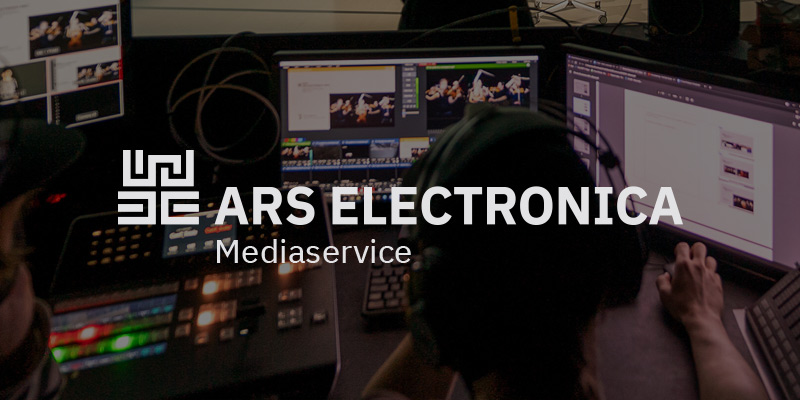photos on Flickr
opening-video on Youtube
hyperlapse-video of the reconstruction on Youtube
Compass – Navigating the Future / exhibitions
(Linz, May 30, 2019) Watch Artificial intelligence (AI) “think”, experience industrial robots’ puppet play, train self-propelled cars, try out the much-discussed “CRISPR/Cas9” gene scissors or fly around the world – the new Ars Electronica Center invites visitors to inspiring excursions into the future fields of AI and neurosciences, robotics and autonomous mobility, as well as genetic engineering and biotechnology. Friday, May 31 to Sunday, June 2, the opening weekend is on the agenda – and the new Museum of the Future shows what it is capable of!
Wide range from A to Z
Everyone is talking about Artificial Intelligence (AI). Whether self-propelled cars, the Facebook news feed, language assistants such as Siri, Cortana or Alexa, Google Translate or diagnostic procedures in medicine – behind all these things is already AI. In the “Understanding AI” exhibition, everyone can experience how these systems work. Short guided tours and presentations will use great projects such as “Anatomy of an AI” to show which global circles the current triumph of AI is drawing. Keyword global circles: the exhibition “Global Shift” shows how massively we humans have already shaped the face of this planet according to our ideas, and in the new Bio Lab it becomes clear how deeply we directly intervene in the design of life, for example with the “CRISPR/Cas9” genetic scissors that have recently hit the headlines.
Future – a whole weekend long:
Program of Friday, 31.5.2019:
Presentations:
Get an overview of the new exhibitions (25 minutes)
Deep Space 8K (Level 0): 10:00 a.m, 1:00 p.m., 3:00 p.m.
Seminar room (level -1): 11:00 a.m., 2:00 p.m., 4:00 p.m.
Presentations:
Here you get an overview of the new Ars Electronica Labs (level -1) (approx. 20 minutes)
Bio Lab: 9:30 a.m., 11:30 a.m., 1:30 p.m., 3:30 p.m.
Second Body Lab & Material Lab: 9:30 a.m., 11:30 a.m., 1.30 p.m., 3:30 p.m.
Citizen Lab: 10:00 a.m., 11:00 a.m., 2:00 p.m., 4 p.m.
Short tours:
Gain a first impression of the new exhibitions during short guided tours. (approx. 20 min.)
Understanding Artificial Intelligence: 9:30 a.m., 11:30 a.m., 1:30 p.m., 3:30 p.m.
Neuro-Bionics: 10:00 a.m., 11:00 a.m., 2:00 p.m., 4 p.m.
Machine Learning Studio: 9:30 a.m., 11:30 a.m., 1.30 p.m., 3:30 p.m.
Global Shift: 9:30 a.m., 11:30 a.m., 1.30 p.m., 3:30 p.m.
Try and get to know yourself (level -3)(approx. 20 min.)
What do brain-computer interfaces actually serve for and in which areas are they used?
Brain Computer Interface: 10:00 a.m., 11:00 a.m., 2:00 p.m., 4 p.m.
Program from Saturday, 1.6. and Sunday, 2.6.2019:
Presentations:
Get an overview of the new exhibitions (25 minutes)
Deep Space 8K (Level 0): 11:00 a.m., 2:00 p.m., 4:00 p.m.
Seminar room (level -1): 1:00 p.m., 3:00 p.m., 5:00 p.m.
Presentations:
Here you get an overview of the new Ars Electronica Labs (level -1) (approx. 20 minutes)
Bio Lab: 10:30 a.m., 2:30 p.m., 4:30 p.m.
Material Lab & Second Body Lab: 10:30 a.m, 2:30 p.m., 4:30 p.m.
Citizen Lab: 11:00 a.m., 1:00 p.m., 3:00 p.m., 5:00 p.m.
Short tours:
Gain a first impression of the new exhibitions during short guided tours. (approx. 20 min.)
Understanding Artificial Intelligence: 10:30, 12:30, 14:30, 16:30
Neuro-Bionics: 11:00 a.m., 1:00 p.m., 3:00 p.m., 5 p.m.
Machine Learning Studio: 10:30 a.m., 2:30 p.m., 4:30 p.m.
Global Shift: 10:30 a.m., 2:30 p.m., 4:30 p.m.
Photo:
pinocchio // Fotocredit: vog.photo / Printversion
Photo:
Neural Network Training / Ars Electronica Futurelab // Fotocredit: vog.photo / Printversion
Photo:
Machine Learning Studio / Fotocredit: vog.photo / Printversion
Photo:
ORBIT – A Journey Around Earth in Real Time / Seán Doran (UK) // Fotocredit:vog.photo / Printversion
Photo:
MaterialLab // Fotocredit: vog.photo / Printversion
Photo:
SEER: Simulative Emotional Expression Robot / Takayuki Todo (JP) // Fotocredit: Florian Voggeneder / Printversion

